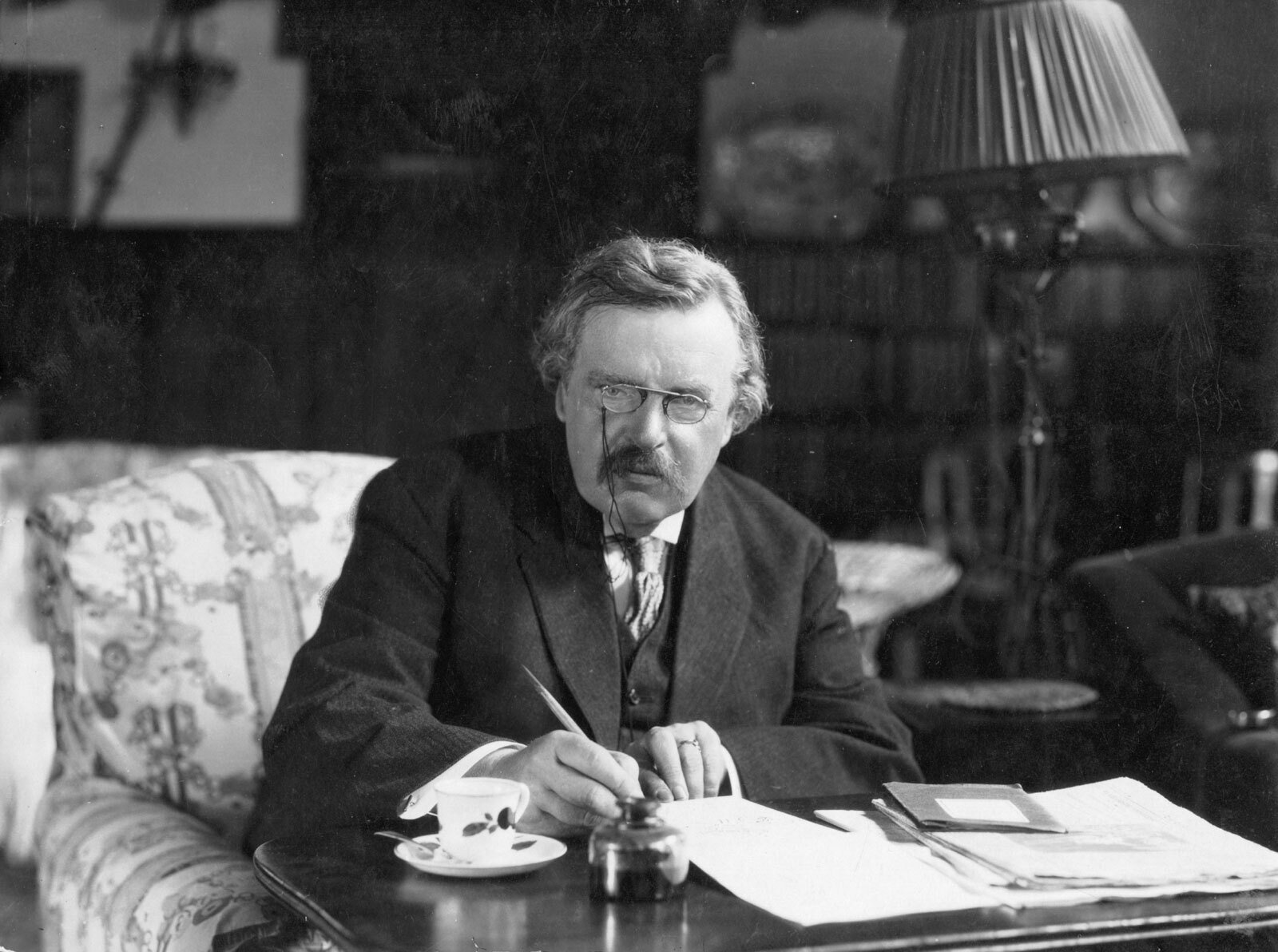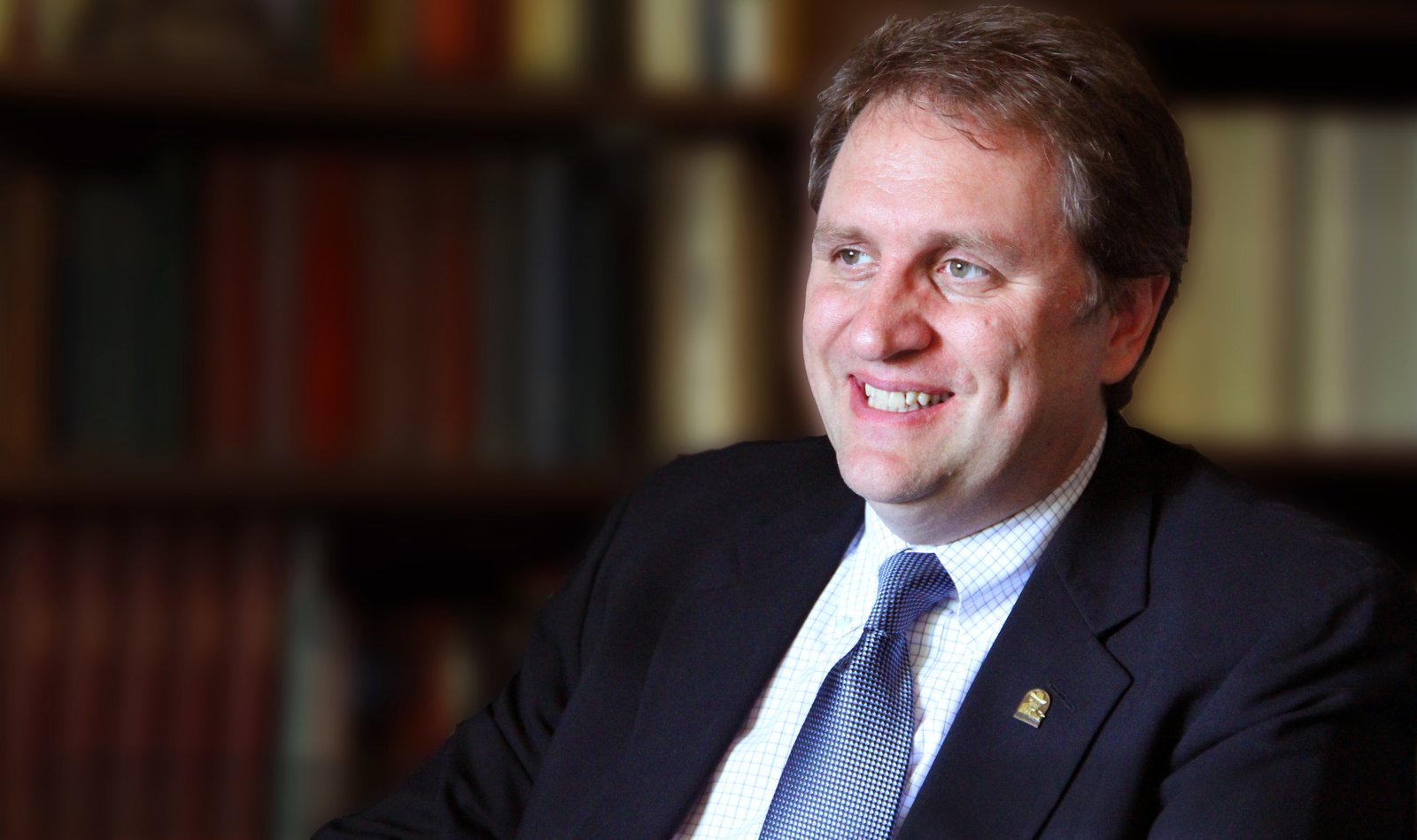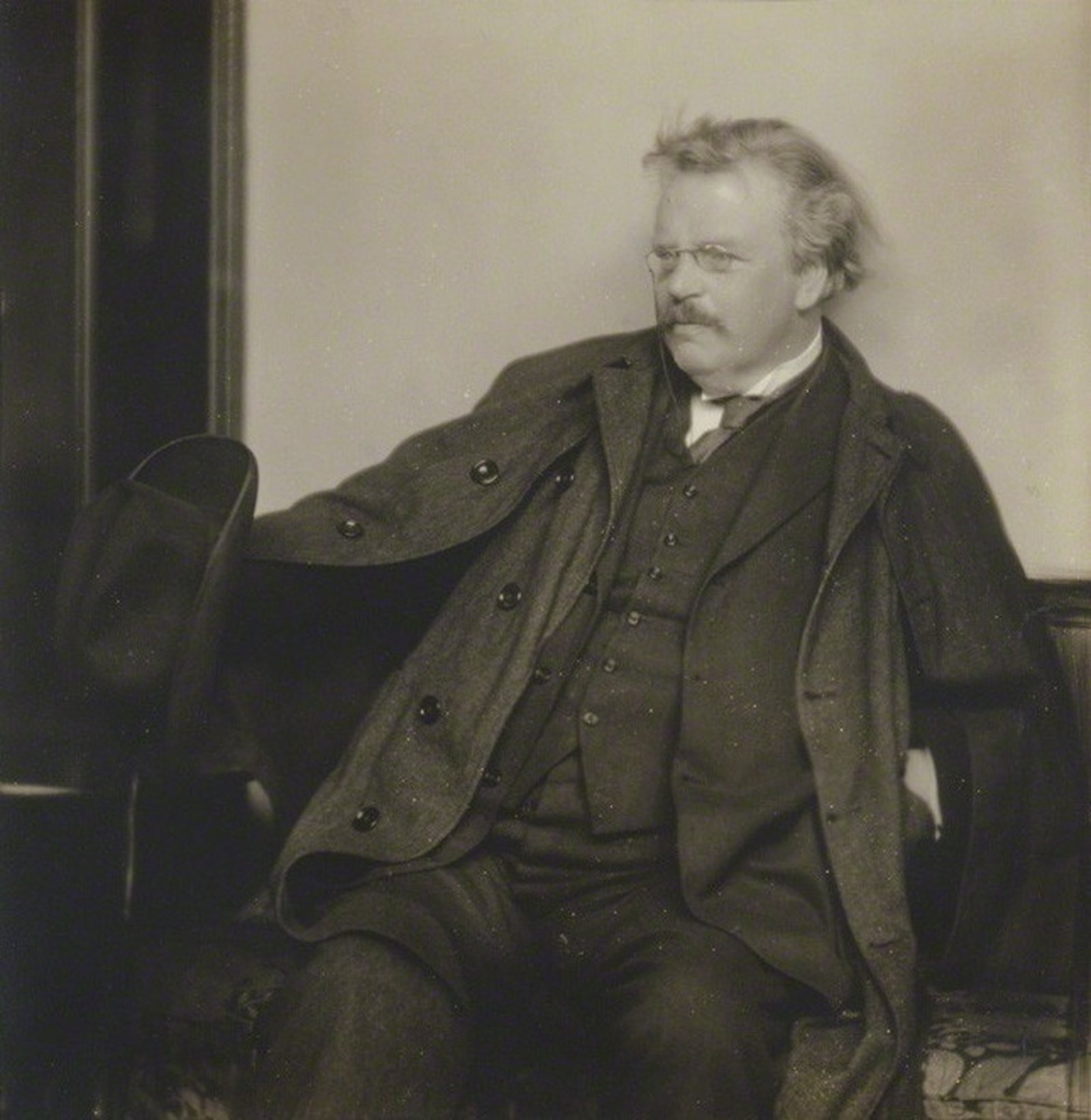Re-launched in June 2023, Chesterton Society of Southeast Michigan seeks to revive authentic debate and fellowship
CLINTON TOWNSHIP — “The madman is not the man who has lost his reason; the madman is the man who has lost everything except his reason.”
That might sound like a commentary on the state of discourse on Twitter — or X, or whatever it's called today — but those words were written by G.K. Chesterton in 1908 in his book “Orthodoxy.”
Timeless wisdom such as this from the late-19th, early-20th century Catholic English writer, poet and philosopher Gilbert Keith Chesterton drew Jon Hess to want to know more of Chesterton’s philosophy and eventually led to the creation of the Southeast Michigan Chesterton Society, a group Hess now leads that meets once a month to discuss Chesterton and his works.
Don't miss another story
Did you know you can get Detroit Catholic's latest daily or weekly articles delivered to your inbox? It's easy and free to sign up.
“The Chesterton Society has the goal to study, learn from Chesterton, and revive his — to use a Catholic term — cult,” Hess told Detroit Catholic. “'Cult' is the term (to describe) people devoted to following a saint. Chesterton isn’t a saint, but to a lesser degree, the Chesterton Society has devoted itself to pursuing the ideas Chesterton describes and discusses."
So why join such a society?
“People would join a Chesterton Society for the same reason I joined 15 years ago,” Hess said. “Through providence and reading Chesterton, he discussed his perception of what was going on in the world, and it was so acute. He describes things in his time, before World War II, that relate so much to our world today.”
The Southeast Michigan Chesterton Society has 40 members on its email list, with 10 or so meeting every month at the Chesterton Academy of Our Lady of Guadalupe in Clinton Township, 21400 S. Nunneley Road, to discuss a particular work by Chesterton or one of his contemporaries.
The group had been dormant for a while, but relaunched in June 2023 for people who wanted to get together to discuss Chesterton and his works.
“If you come to a Chesterton meeting, you will have a particular thing we are reading, we’ll read some passages from it, and then discuss those passages, what stands out to our members,” Hess said. “Sometimes we’ll invite someone to give a lecture on a particular topic related to Chesterton. You don’t necessarily have to do the reading, but it helps with the discussion.”

John Howting became a member in 2018 because he wanted to discuss Chesterton and his ideas with other “Chestertonians.” He gained an appreciation for the author after seeing a program on EWTN called “The Apostle of Common Sense,” with Dale Ahlquist, president of the American Chesterton Society.
Howting later was recommended to read Chesterton by people at work.
“I knew several people fascinated with Chesterton, including Congressman Thad McCotter (U.S. Representative from 2003-12), who I worked for,” Howting said. “He was a Chesterton fan. But even before that, a buddy of mine, James O’Keefe, gave me a copy of Chesterton’s book about St. Francis of Assisi.”
Howting said what inspired him about Chesterton’s prose was his ability to use paradoxes to describe complex, often apparently contradicting ideas, and synthesize them to make a distinct commentary about the world.
“Since he writes in paradoxes, you have to unpack what he is saying,” Howting said. “At first what he is saying almost doesn’t make any sense. But a paradox isn’t necessarily a contradiction; a paradox is an apparent contradiction that contains a deeper truth. When Chesterton appears to be giving you a contradiction, it’s an invitation to take a closer look.”
Unpacking those paradoxes to reveal the deeper truths Chesterton is trying to convey is why Chestertonians in the area wanted to begin meeting in the first place.
Robert Roesser was the recording secretary at the first Southeast Michigan Chesterton Society meeting at a Fuddruckers restaurant on Van Dyke Road in Sterling Heights — Chesterton himself would appreciate any gathering that took place at a pub.
The group first came together in 2012 after learning about Chesterton, primarily from Ahlquist’s program on EWTN, to discuss the ideas Chesterton was advocating in his time and how they could be applicable today.

“We had a common topic or common theme to espouse on,” Roesser said of that first meeting, which had about 15 people present. “We were discussing Distributism as a form of a financial way of running society. In other words, everybody should be a small capitalist, like in the days of old. Everyone lived on a farm, produced products on a small, family-oriented basis and decisions were made at the local level.”
The members and numbers have fluctuated through the years, but there always has been a small and dedicated group of men and women in the area, from various social backgrounds, occupations, Catholic and non-Catholic, who have wanted to come together to discuss Chesterton.
It’s a wide variety of people — not all wearing tweed and smoking cigars as popular perception might suspect — who want to sit and have a true dialogue about a common interest.
“I do enjoy the face-to-face conversations with fellow Christians and Chestertonians,” said Carl Moranti, a Southeast Michigan Chesterton Society member. “Chesterton liked the pub as a place for people to meet and experience fellowship. We sometimes discuss current news events in the context of our Christian filter. Although Chesterton’s writings are the centerpiece of our conversations, other good authors are sometimes discussed. For instance, Jon Hess has introduced writings from Hilaire Belloc, an author who influenced Chesterton.”
The Chesterton Society often invites outside speakers, or regular members, to deliver lectures on various works by Chesterton or one of his contemporaries.
Howting recently delivered a lecture on Chesterton and his defense of “useless activities.”
“We think everything has to be for some larger reason or some other purpose,” Howting said. “Usually for the purpose of making money, and that is unfortunate. The best things are useless. I don’t mean that as an insult, and neither did Chesterton. Chesterton said a man who doesn’t do useless things is not fully a man.”
The society is currently reading “The Servile State” by Hilaire Belloc, with its next meeting scheduled for Thursday, Jan. 11.

Hess said anyone is welcome to join — no prior Chestertonian experience is necessary. It would be helpful to read the book that is being discussed, but even that isn’t a requirement for admission.
“Camaraderie is the biggest thing a person will get out of a Chesterton Society meeting, the wholesomeness of dialogue with people who are on the same journey and the challenge of learning from someone who is not from our time,” Hess said. “I think that is very important; something we don’t do often. Chesterton is not from our country, not from our time, but his ideas are timeless.”
Hess and other Chesterton Society members say what attracts them most to the group and to Chesterton himself is the emphasis on common sense in world that more and more is seemingly devoid of it.
The group engages in discussion and debate, but not what passes for debate in 21st century internet chatrooms and comment sections, but a dialogue among people who will the common good for one another in search of the truth — much like the famed Chesterton, who reveled in deep talks at the pub and verbal sparring with his contemporaries.
If such activities seem appealing, Hess said an open invitation is extended to anyone who wants to explore the work of Chesterton with like-minded fellows, whether a person is well-read on Chesterton or just picked him up off the shelf for the first time.
“We love questions. We love people coming into the group with new perspectives. Chesterton is a writer who can be enjoyed by anyone,” Hess said. “We strive to make the society like what Chesterton had with his friends. The would go to the pub, get some drinks and would discuss everything. If you go off on a tangent, no one is angry that you didn’t discuss the chapter. We are here to learn together.”
Copy Permalink
Culture and Media











